- Home
- Wilkie Collins
Basil Page 2
Basil Read online
Page 2
Among a host of instances of this peculiar pride of his which I could cite, I remember one, characteristic enough to be taken as a sample of all the rest. It happened when I was quite a child, and was told me by one of my uncles now dead—who witnessed the circumstance himself, and always made a good story of it to the end of his life.
A merchant of enormous wealth, who had recently been raised to the peerage, was staying at one of our country houses. His daughter, my uncle, and an Italian Abbe were the only guests besides. The merchant was a portly, purple-faced man, who bore his new honours with a curious mixture of assumed pomposity and natural good-humour. The Abbe was dwarfish and deformed, lean, sallow, sharp-featured, with bright bird-like eyes, and a low, liquid voice. He was a political refugee, dependent for the bread he ate, on the money he received for teaching languages. He might have been a beggar from the streets; and still my father would have treated him as the principal guest in the house, for this all-sufficient reason—he was a direct descendant of one of the oldest of those famous Roman families whose names are part of the history of the Civil Wars in Italy.
On the first day, the party assembled for dinner comprised the merchant's daughter, my mother, an old lady who had once been her governess, and had always lived with her since her marriage, the new Lord, the Abbe, my father, and my uncle. When dinner was announced, the peer advanced in new-blown dignity, to offer his arm as a matter of course to my mother. My father's pale face flushed crimson in a moment. He touched the magnificent merchant-lord on the arm, and pointed significantly, with a low bow, towards the decrepit old lady who had once been my mother's governess. Then walking to the other end of the room, where the penniless Abbe was looking over a book in a corner, he gravely and courteously led the little, deformed, limping language-master, clad in a long, threadbare, black coat, up to my mother (whose shoulder the Abbe's head hardly reached), held the door open for them to pass out first, with his own hand; politely invited the new nobleman, who stood half-paralysed between confusion and astonishment, to follow with the tottering old lady on his arm; and then returned to lead the peer's daughter down to dinner himself. He only resumed his wonted expression and manner, when he had seen the little Abbe—the squalid, half-starved representative of mighty barons of the olden time—seated at the highest place of the table by my mother's side.
It was by such accidental circumstances as these that you discovered how far he was proud. He never boasted of his ancestors; he never even spoke of them, except when he was questioned on the subject; but he never forgot them. They were the very breath of his life; the deities of his social worship: the family treasures to be held precious beyond all lands and all wealth, all ambitions and all glories, by his children and his children's children to the end of their race.
In home-life he performed his duties towards his family honourably, delicately, and kindly. I believe in his own way he loved us all; but we, his descendants, had to share his heart with his ancestors—we were his household property as well as his children. Every fair liberty was given to us; every fair indulgence was granted to us. He never displayed any suspicion, or any undue severity. We were taught by his direction, that to disgrace our family, either by word or action, was the one fatal crime which could never be forgotten and never be pardoned. We were formed, under his superintendence, in principles of religion, honour, and industry; and the rest was left to our own moral sense, to our own comprehension of the duties and privileges of our station. There was no one point in his conduct towards any of us that we could complain of; and yet there was something always incomplete in our domestic relations.
It may seem incomprehensible, even ridiculous, to some persons, but it is nevertheless true, that we were none of us ever on intimate terms with him. I mean by this, that he was a father to us, but never a companion. There was something in his manner, his quiet and unchanging manner, which kept us almost unconsciously restrained. I never in my life felt less at my ease—I knew not why at the time—than when I occasionally dined alone with him. I never confided to him my schemes for amusement as a boy, or mentioned more than generally my ambitious hopes, as a young man. It was not that he would have received such confidences with ridicule or severity, he was incapable of it; but that he seemed above them, unfitted to enter into them, too far removed by his own thoughts from such thoughts as ours. Thus, all holiday councils were held with old servants; thus, my first pages of manuscript, when I first tried authorship, were read by my sister, and never penetrated into my father's study.
Again, his mode of testifying displeasure towards my brother or myself, had something terrible in its calmness, something that we never forgot, and always dreaded as the worst calamity that could befall us.
Whenever, as boys, we committed some boyish fault, he never displayed outwardly any irritation—he simply altered his manner towards us altogether. We were not soundly lectured, or vehemently threatened, or positively punished in anyway; but, when we came in contact with him, we were treated with a cold, contemptuous politeness (especially if our fault showed a tendency to anything mean or ungentlemanlike) which cut us to the heart. On these occasions, we were not addressed by our Christian names; if we accidentally met him out of doors, he was sure to turn aside and avoid us; if we asked a question, it was answered in the briefest possible manner, as if we had been strangers. His whole course of conduct said, as though in so many words—You have rendered yourselves unfit to associate with your father; and he is now making you feel that unfitness as deeply as he does. We were left in this domestic purgatory for days, sometimes for weeks together. To our boyish feelings (to mine especially) there was no ignominy like it, while it lasted.
I know not on what terms my father lived with my mother. Towards my sister, his demeanour always exhibited something of the old-fashioned, affectionate gallantry of a former age. He paid her the same attention that he would have paid to the highest lady in the land. He led her into the dining-room, when we were alone, exactly as he would have led a duchess into a banqueting-hall. He would allow us, as boys, to quit the breakfast-table before he had risen himself; but never before she had left it. If a servant failed in duty towards him, the servant was often forgiven; if towards her, the servant was sent away on the spot. His daughter was in his eyes the representative of her mother: the mistress of his house, as well as his child. It was curious to see the mixture of high-bred courtesy and fatherly love in his manner, as he just gently touched her forehead with his lips, when he first saw her in the morning.
In person, my father was of not more than middle height. He was very slenderly and delicately made; his head small, and well set on his shoulders—his forehead more broad than lofty—his complexion singularly pale, except in moments of agitation, when I have already noticed its tendency to flush all over in an instant. His eyes, large and gray, had something commanding in their look; they gave a certain unchanging firmness and dignity to his expression, not often met with. They betrayed his birth and breeding, his old ancestral prejudices, his chivalrous sense of honour, in every glance. It required, indeed, all the masculine energy of look about the upper part of his face, to redeem the lower part from an appearance of effeminacy, so delicately was it moulded in its fine Norman outline. His smile was remarkable for its sweetness—it was almost like a woman's smile. In speaking, too, his lips often trembled as women's do. If he ever laughed, as a young man, his laugh must have been very clear and musical; but since I can recollect him, I never heard it. In his happiest moments, in the gayest society, I have only seen him smile.
There were other characteristics of my father's disposition and manner, which I might mention; but they will appear to greater advantage, perhaps, hereafter, connected with circumstances which especially called them forth.
IV.
When a family is possessed of large landed property, the individual of that family who shows least interest in its welfare; who is least fond of home, least connected by his own sympathies with his relatives, least read
y to learn his duties or admit his responsibilities, is often that very individual who is to succeed to the family inheritance—the eldest son.
My brother Ralph was no exception to this remark. We were educated together. After our education was completed, I never saw him, except for short periods. He was almost always on the continent, for some years after he left college. And when he returned definitely to England, he did not return to live under our roof. Both in town and country he was our visitor, not our inmate.
I recollect him at school—stronger, taller, handsomer than I was; far beyond me in popularity among the little community we lived with; the first to lead a daring exploit, the last to abandon it; now at the bottom of the class, now at the top—just that sort of gay, boisterous, fine-looking, dare-devil boy, whom old people would instinctively turn round and smile after, as they passed him by in a morning walk.
Then, at college, he became illustrious among rowers and cricketers, renowned as a pistol shot, dreaded as a singlestick player. No wine parties in the university were such wine parties as his; tradesmen gave him the first choice of everything that was new; young ladies in the town fell in love with him by dozens; young tutors with a tendency to dandyism, copied the cut of his coat and the tie of his cravat; even the awful heads of houses looked leniently on his delinquencies. The gay, hearty, handsome young English gentleman carried a charm about him that subdued everybody. Though I was his favourite butt, both at school and college, I never quarrelled with him in my life. I always let him ridicule my dress, manners, and habits in his own reckless, boisterous way, as if it had been a part of his birthright privilege to laugh at me as much as he chose.
Thus far, my father had no worse anxieties about him than those occasioned by his high spirits and his heavy debts. But when he returned home—when the debts had been paid, and it was next thought necessary to drill the free, careless energies into something like useful discipline—then my father's trials and difficulties began in earnest.
It was impossible to make Ralph comprehend and appreciate his position, as he was desired to comprehend and appreciate it. The steward gave up in despair all attempts to enlighten him about the extent, value, and management of the estates he was to inherit. A vigorous effort was made to inspire him with ambition; to get him to go into parliament. He laughed at the idea. A commission in the Guards was next offered to him. He refused it, because he would never be buttoned up in a red coat; because he would submit to no restraints, fashionable or military; because in short, he was determined to be his own master. My father talked to him by the hour together, about his duties and his prospects, the cultivation of his mind, and the example of his ancestors; and talked in vain. He yawned and fidgetted over the emblazoned pages of his own family pedigree, whenever they were opened before him.
In the country, he cared for nothing but hunting and shooting—it was as difficult to make him go to a grand county dinner-party, as to make him go to church. In town, he haunted the theatres, behind the scenes as well as before; entertained actors and actresses at Richmond; ascended in balloons at Vauxhall; went about with detective policemen, seeing life among pickpockets and housebreakers; belonged to a whist club, a supper club, a catch club, a boxing club, a picnic club, an amateur theatrical club; and, in short, lived such a careless, convivial life, that my father, outraged in every one of his family prejudices and family refinements, almost ceased to speak to him, and saw him as rarely as possible. Occasionally, my sister's interference reconciled them again for a short time; her influence, gentle as it was, was always powerfully felt for good, but she could not change my brother's nature. Persuade and entreat as anxiously as she might, he was always sure to forfeit the paternal favour again, a few days after he had been restored to it.
At last, matters were brought to their climax by an awkward love adventure of Ralph's with one of our tenants' daughters. My father acted with his usual decision on the occasion. He determined to apply a desperate remedy: to let the refractory eldest son run through his career in freedom, abroad, until he had well wearied himself, and could return home a sobered man. Accordingly, he procured for my brother an attache's place in a foreign embassy, and insisted on his leaving England forthwith. For once in a way, Ralph was docile. He knew and cared nothing about diplomacy; but he liked the idea of living on the continent, so he took his leave of home with his best grace. My father saw him depart, with ill-concealed agitation and apprehension; although he affected to feel satisfied that, flighty and idle as Ralph was, he was incapable of voluntarily dishonouring his family, even in his most reckless moods.
After this, we heard little from my brother. His letters were few and short, and generally ended with petitions for money. The only important news of him that reached us, reached us through public channels.
He was making quite a continental reputation—a reputation, the bare mention of which made my father wince. He had fought a duel; he had imported a new dance from Hungary; he had contrived to get the smallest groom that ever was seen behind a cabriolet; he had carried off the reigning beauty among the opera-dancers of the day from all competitors; a great French cook had composed a great French dish, and christened it by his name; he was understood to be the "unknown friend," to whom a literary Polish countess had dedicated her "Letters against the restraint of the Marriage Tie;" a female German metaphysician, sixty years old, had fallen (Platonically) in love with him, and had taken to writing erotic romances in her old age. Such were some of the rumours that reached my father's ears on the subject of his son and heir!
After a long absence, he came home on a visit. How well I remember the astonishment he produced in the whole household! He had become a foreigner in manners and appearance. His mustachios were magnificent; miniature toys in gold and jewellery hung in clusters from his watch-chain; his shirt-front was a perfect filigree of lace and cambric. He brought with him his own boxes of choice liqueurs and perfumes; his own smart, impudent, French valet; his own travelling bookcase of French novels, which he opened with his own golden key. He drank nothing but chocolate in the morning; he had long interviews with the cook, and revolutionized our dinner table. All the French newspapers were sent to him by a London agent. He altered the arrangements of his bed-room; no servant but his own valet was permitted to enter it. Family portraits that hung there, were turned to the walls, and portraits of French actresses and Italian singers were stuck to the back of the canvasses. Then he displaced a beautiful little ebony cabinet which had been in the family three hundred years; and set up in its stead a Cyprian temple of his own, in miniature, with crystal doors, behind which hung locks of hair, rings, notes written on blush-coloured paper, and other love-tokens kept as sentimental relics. His influence became all-pervading among us. He seemed to communicate to the house the change that had taken place in himself, from the reckless, racketty young Englishman to the super-exquisite foreign dandy. It was as if the fiery, effervescent atmosphere of the Boulevards of Paris had insolently penetrated into the old English mansion, and ruffled and infected its quiet native air, to the remotest corners of the place.
My father was even more dismayed than displeased by the alteration in my brother's habits and manners—the eldest son was now farther from his ideal of what an eldest son should be, than ever. As for friends and neighbours, Ralph was heartily feared and disliked by them, before he had been in the house a week. He had an ironically patient way of listening to their conversation; an ironically respectful manner of demolishing their old-fashioned opinions, and correcting their slightest mistakes, which secretly aggravated them beyond endurance. It was worse still, when my father, in despair, tried to tempt him into marriage, as the one final chance of working his reform; and invited half the marriageable young ladies of our acquaintance to the house, for his especial benefit.
Ralph had never shown much fondness at home, for the refinements of good female society. Abroad, he had lived as exclusively as he possibly could, among women whose characters ranged downwards by infin
itesimal degrees, from the mysteriously doubtful to the notoriously bad. The highly-bred, highly-refined, highly-accomplished young English beauties had no charm for him. He detected at once the domestic conspiracy of which he was destined to become the victim. He often came up-stairs, at night, into my bed-room; and while he was amusing himself by derisively kicking about my simple clothes and simple toilette apparatus; while he was laughing in his old careless way at my quiet habits and monotonous life, used to slip in, parenthetically, all sorts of sarcasms about our young lady guests. To him, their manners were horribly inanimate; their innocence, hypocrisy of education. Pure complexions and regular features were very well, he said, as far as they went; but when a girl could not walk properly, when she shook hands with you with cold fingers, when having good eyes she could not make a stimulating use of them, then it was time to sentence the regular features and pure complexions to be taken back forthwith to the nursery from which they came. For his part, he missed the conversation of his witty Polish Countess, and longed for another pancake-supper with his favourite grisettes.
The failure of my father's last experiment with Ralph soon became apparent. Watchful and experienced mothers began to suspect that my brother's method of flirtation was dangerous, and his style of waltzing improper. One or two ultra-cautious parents, alarmed by the laxity of his manners and opinions, removed their daughters out of harm's way, by shortening their visits. The rest were spared any such necessity. My father suddenly discovered that Ralph was devoting himself rather too significantly to a young married woman who was staying in the house. The same day he had a long private interview with my brother. What passed between them, I know not; but it must have been something serious. Ralph came out of my father's private study, very pale and very silent; ordered his luggage to be packed directly; and the next morning departed, with his French valet, and his multifarious French goods and chattels, for the continent.

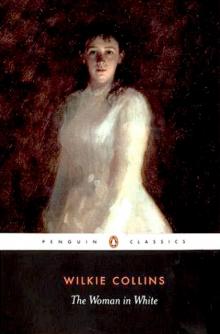 The Woman in White
The Woman in White The Queen of Hearts
The Queen of Hearts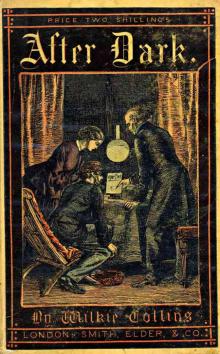 Miss Jeromette and the Clergyman
Miss Jeromette and the Clergyman Man and Wife
Man and Wife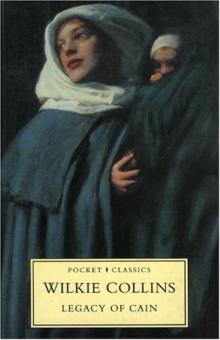 The Legacy of Cain
The Legacy of Cain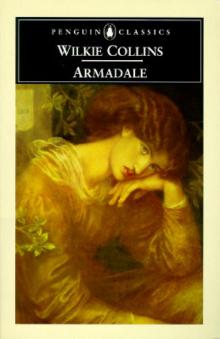 Armadale
Armadale The Frozen Deep
The Frozen Deep John Jago's Ghost or the Dead Alive
John Jago's Ghost or the Dead Alive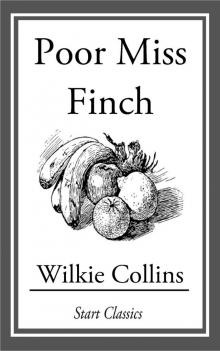 Poor Miss Finch
Poor Miss Finch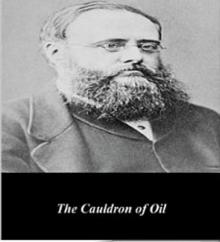 The Cauldron of Oil: A Case Worth Looking At
The Cauldron of Oil: A Case Worth Looking At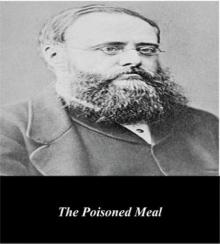 The Poisoned Meal
The Poisoned Meal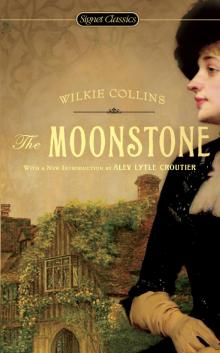 The Moonstone
The Moonstone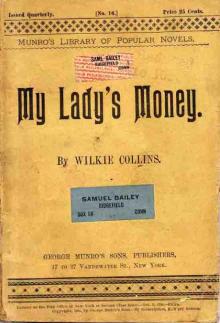 My Lady's Money
My Lady's Money Classic Ghost Stories
Classic Ghost Stories Jezebel's Daughter
Jezebel's Daughter The Devil's Spectacles
The Devil's Spectacles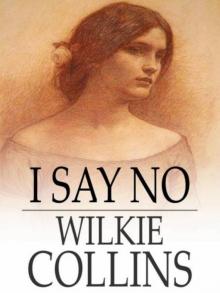 I Say No
I Say No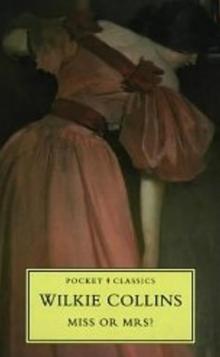 Miss or Mrs.?
Miss or Mrs.?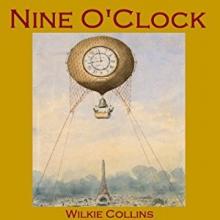 Nine O'Clock
Nine O'Clock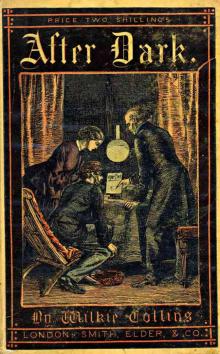 The Lawyer's Story of a Stolen Letter
The Lawyer's Story of a Stolen Letter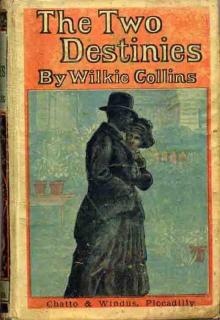 The Two Destinies
The Two Destinies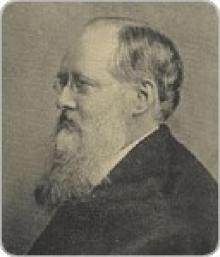 Mr. Percy and the Prophet
Mr. Percy and the Prophet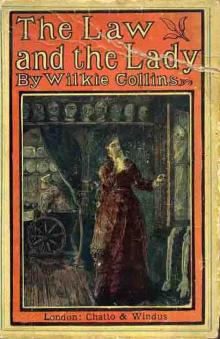 The Law and the Lady
The Law and the Lady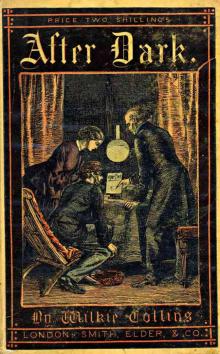 The Nun's Story of Gabriel's Marriage
The Nun's Story of Gabriel's Marriage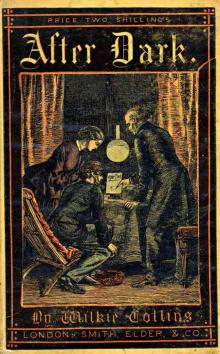 After Dark
After Dark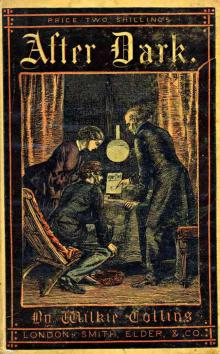 Mr. Captain and the Nymph
Mr. Captain and the Nymph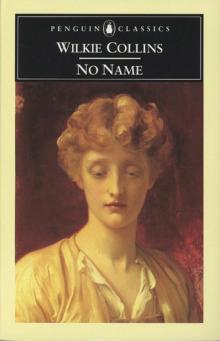 No Name
No Name The Moonstone (Penguin Classics)
The Moonstone (Penguin Classics) Antonina
Antonina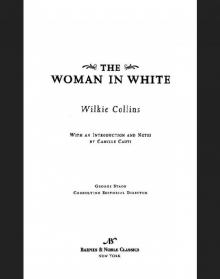 Woman in White (Barnes & Noble Classics Series)
Woman in White (Barnes & Noble Classics Series)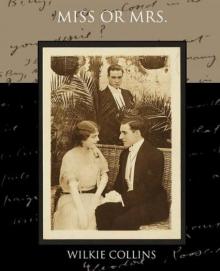 Miss or Mrs
Miss or Mrs The Dead Alive
The Dead Alive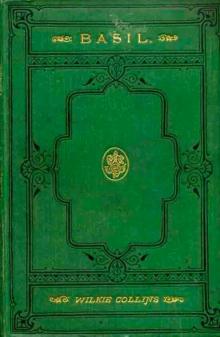 Basil
Basil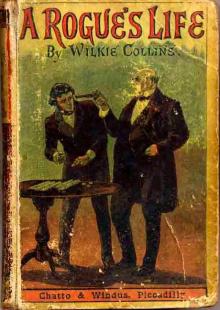 A Rogue's Life
A Rogue's Life The New Magdalen
The New Magdalen Blind Love
Blind Love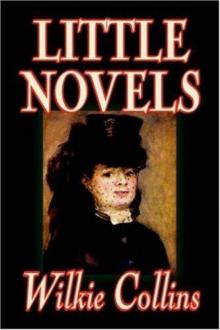 Little Novels
Little Novels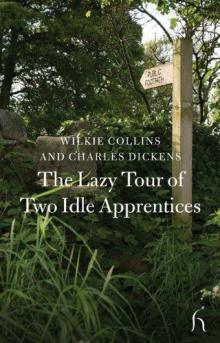 The Lazy Tour of Two Idle Apprentices
The Lazy Tour of Two Idle Apprentices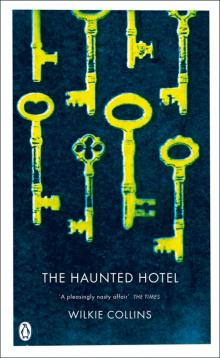 The Haunted Hotel
The Haunted Hotel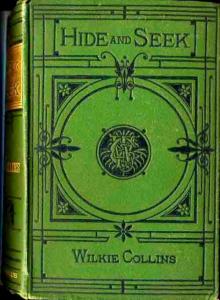 Hide and Seek
Hide and Seek